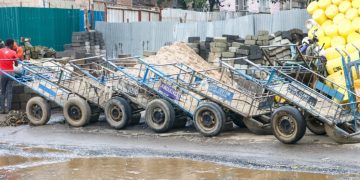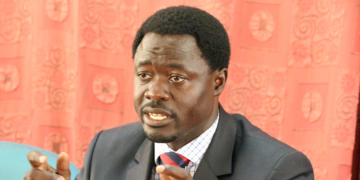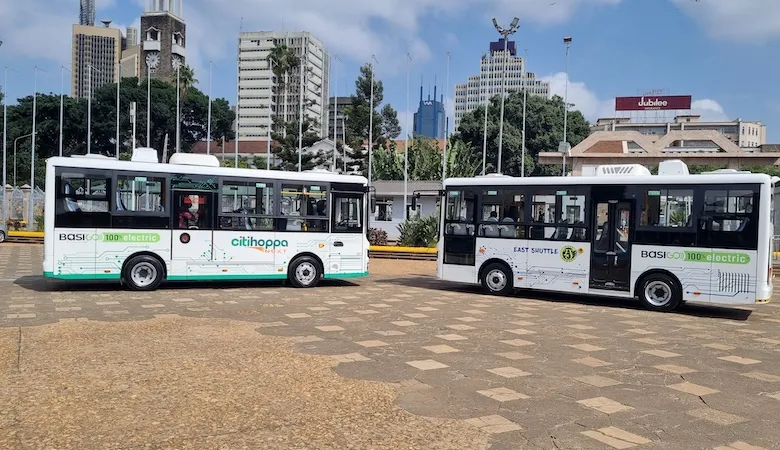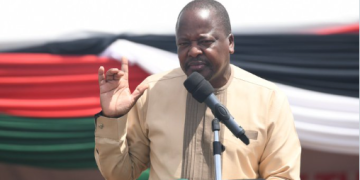Life in Kenya is becoming increasingly difficult. Prices of basic commodities are accruing every day.
Worse of all, we are dealing with shortages of the same commodities that have become extremely expensive. It started with milk, now we experiencing a fuel shortage crisis with long queues of motorists witnessed at fuel stations across the country.
A Citizen Tv reporter caught up with Comedian Njugush, whose real name is Timothy Kamani, queuing for fuel. He asked Njugush to air out his comments on the ongoing crisis, and as usual, Njugush killed it by criticizing Kenyans and leaders sarcastically.

He joked how Kenyans are okay with the whole situation because they are used to queuing for things, including voting for irresponsible leaders.
Amidst his jokes, he sarcastically criticizes how the government spent billions of shilling on the BBI movement, yet the country is facing serious issues. His sarcasm does not end here.
He goes on to claim how Kenyans are enjoying to queue at the fuel stations because they get to meet with leaders, who are also queuing for fuel.
Here’s a snippet of what he says in the one-minute video, “Wakenya tumezoea kupiga line, tunashukuru serikali… Tupige laini asubuhi ya mafuta, alafu upige ya maziwa alafu baadaye naskia maji imeisha… lakini tunafurahia…”
Njugush’s comedy mainly entails criticizing immorality, especially in politics and leadership, in funny ways. In previous interviews, Njugush revealed that his comedy style focuses on sensitizing his audience not to be silent in cases of social injustices. He claimed that his sarcasm aims at making his fans think critically about the situations they are in and act accordingly.
Comedian Njugush gives his tongue-in-cheek take on the current fuel crisis in Kenya.
“Wakenya tumezoea kupiga line, tunashukuru serikali… Tupige laini asubuhi ya mafuta, alafu upige ya maziwa alafu baadaye naskia maji imeisha… lakini tunafurahia…” pic.twitter.com/yujnMPk0tD
— Citizen TV Kenya (@citizentvkenya) April 13, 2022
The ongoing fuel crisis is progressing into its second week, with the government promising Kenyans that there is enough fuel. It has shifted the blame to oil marketers whom it accuses of exporting oil meant for the local market.
As we are uncertain when this crisis will end, we hope to have many Njugushs who will criticize the problem to influence the government to impose a permanent solution.













































